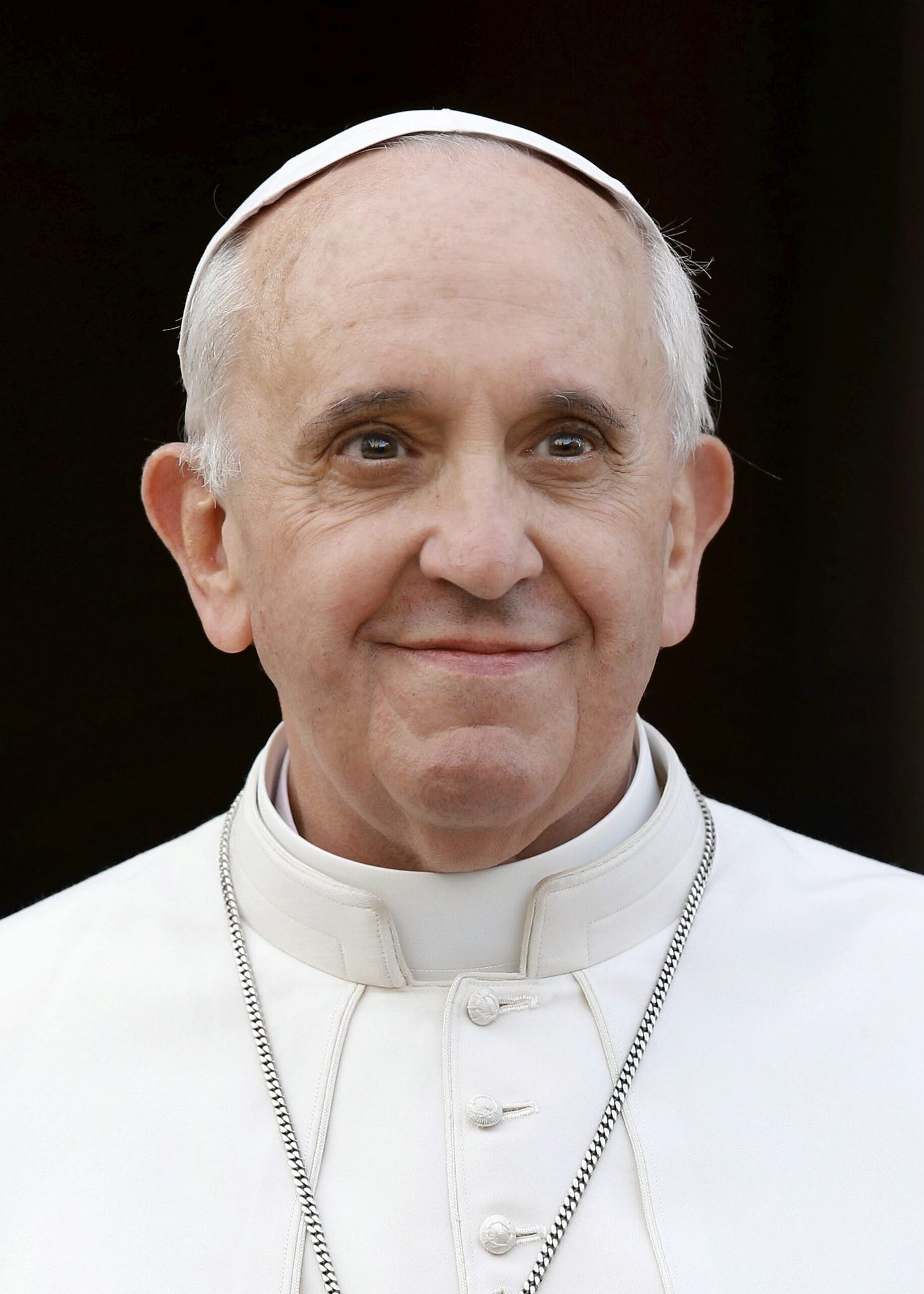What Pope Francis really stood for, in his own words. [Updated]
"You cannot be a Christian without living like a Christian."
I send condolences to all who are mourning the death of Pope Francis.
In commemoration of his life, I recommend reading some of what he had to say. Here are some quotes from a meeting he had with a pilgrimage of Catholics and Lutherans from Germany in 2016. His words were reported by the National Catholic Reporter and linked to just above.
Answering questions from young people in the group Oct. 13, the pope said, "the sickness or, you can say the sin, that Jesus condemns most is hypocrisy," which is precisely what is happening when someone claims to be a Christian but does not live according to the teaching of Christ.
"You cannot be a Christian without living like a Christian," he said. "You cannot be a Christian without practicing the Beatitudes. You cannot be a Christian without doing what Jesus teaches us in Matthew 25," which is to feed the hungry, clothe the naked and welcome the stranger.
"It's hypocrisy to call yourself a Christian and chase away a refugee or someone seeking help, someone who is hungry or thirsty, toss out someone who is in need of my help," he said. "If I say I am Christian, but do these things, I'm a hypocrite."
Update: After I published this, I was reminded that on February 10 of this year Pope Francis wrote to the Bishops of the U.S.A. on the subject of the Christian treatment of immigrants. Among his points:
“Even a cursory examination of the Church’s social doctrine emphatically shows that Jesus Christ is the true Emmanuel (cf. Mt 1:23); he did not live apart from the difficult experience of being expelled from his own land because of an imminent risk to his life, and from the experience of having to take refuge in a society and a culture foreign to his own. The Son of God, in becoming man, also chose to live the drama of immigration. I like to recall, among other things, the words with which Pope Pius XII began his Apostolic Constitution on the Care of Migrants, which is considered the “Magna Carta” of the Church’s thinking on migration:
“The family of Nazareth in exile, Jesus, Mary and Joseph, emigrants in Egypt and refugees there to escape the wrath of an ungodly king, are the model, the example and the consolation of emigrants and pilgrims of every age and country, of all refugees of every condition who, beset by persecution or necessity, are forced to leave their homeland, beloved family and dear friends for foreign lands.”
And:
“I have followed closely the major crisis that is taking place in the United States with the initiation of a program of mass deportations. The rightly formed conscience cannot fail to make a critical judgment and express its disagreement with any measure that tacitly or explicitly identifies the illegal status of some migrants with criminality. At the same time, one must recognize the right of a nation to defend itself and keep communities safe from those who have committed violent or serious crimes while in the country or prior to arrival. That said, the act of deporting people who in many cases have left their own land for reasons of extreme poverty, insecurity, exploitation, persecution or serious deterioration of the environment, damages the dignity of many men and women, and of entire families, and places them in a state of particular vulnerability and defenselessness.”***********************************************************************************************************
To share this post, or to share “Words for the Wise,” please click on these links.
Comments policy: Please be polite and respectful at all times.



True... and so why does Vatican City have walls, locks on their doors and need constant protection/enforcement by Swiss Army Guards?
Was he ever questioned about the walls around the Vatican while he was lecturing the US about border walls?